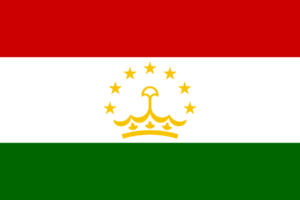Tunisia is a country in transition. Under the one-party regime of former President Zine El Abidine Ben Ali, power was consolidated in the hands of the executive. Judicial independence was not guaranteed in law or in practice, and there was a systematic failure to investigate or prosecute allegations of serious human rights violations.{{1}}
Since the ouster of Ben Ali, the transitional authorities have begun reforming the country’s political and legal system. In January 2014 the National Constituent Assembly, a body elected in October 2011 in Tunisia’s first free and fair elections,{{2}} by an overwhelming majority approved a new Constitution.
The ICJ views the 2014 Constitution as the product of a representative and inclusive process, marking a significant step towards establishing the rule of law and protecting human rights in Tunisia. The Constitution establishes a more balanced separation of powers compared to its 1959 predecessor, recognizing the institutional and individual independence of the judiciary and establishing a High Judicial Council to oversee judges’ careers.
Nevertheless, the 2014 Constitution falls short of international law and standards in certain key aspects.{{3}} In particular, it does not affirm that international human rights treaties ratified by Tunisia are binding and have supremacy over domestic law,{{4}} and some provisions of the Constitution are not consistent with international human rights standards. Among other things, as addressed further below, provisions related to the irremovability of judge, the independence of the Office of the Public Prosecutor and the jurisdiction of military tribunals fall short of international standards.
[[1]]1. See e.g. the cited sources at International Commission of Jurists, The Independence and Accountability of the Tunisian Judicial System: Learning from the Past to Build a Better Future (May 2014), p. 4, footnotes 5 and 6.[[1]]
[[2]]2. See e.g. International Commission of Jurists, Enhancing the Rule of Law and guaranteeing human rights in the Constitution: A report on the constitutional reform process in Tunisia, p. 10-14.[[2]]
[[3]]3. For a comprehensive analysis, see: International Commission of Jurists, The Tunisian Constitution in light of international law and standards (31 January 2014).[[3]]
[[4]]4. See 2014 Constitution, [expand title=”Article 20, “]
International agreements approved and ratified by the Assembly of the Representatives of the People have a status superior to that of laws and inferior to that of the Constitution.
[/expand] which provides that ratified international agreements have a status superior to that of laws, but inferior to that of the Constitution. In theory, international agreements could be applied by Tunisian judges, but this almost never happens.[[4]]





